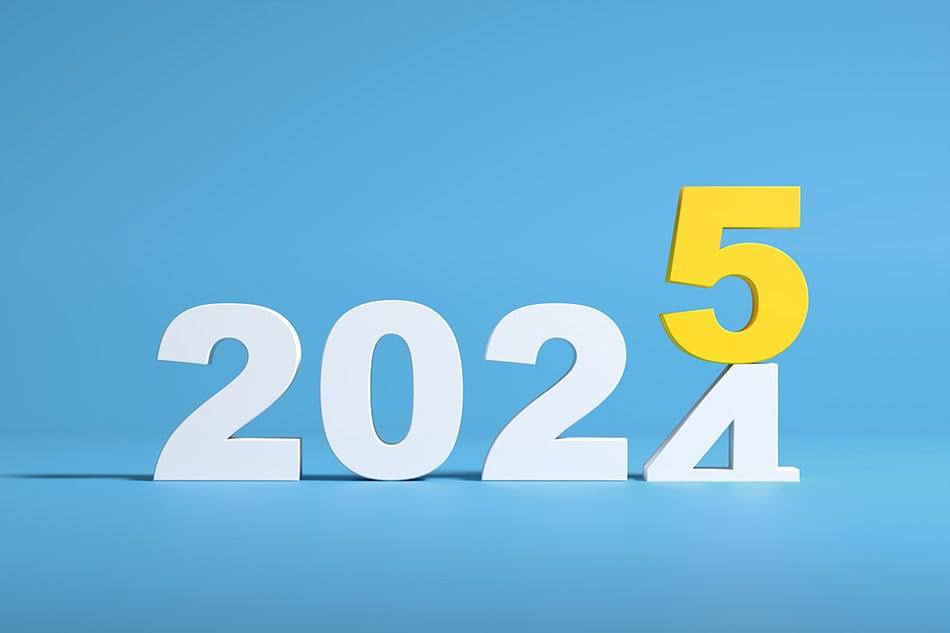You Need to Stop Believing These 7 Money Myths

We all grow up hearing the same financial advice: Spend less, save more and invest early. While most of these words of wisdom ring true, there are many widespread money management tips that are actually false.
Outlined here are 7 money myths that might be causing you more financial stress than benefit.
Myth #1: Debit is always better than credit
Do you automatically reach for your debit card when making a purchase? While it’s true that paying for expenses with money you already have in your account is often the best choice, there is a time and a place for credit cards as well.
The real deal: Credit cards get a bad rap for the debt trap they represent, but they may be your occasional payment method of choice. First, many credit cards offer rewards in the form of travel miles, cash-back systems and other bonuses. Second, building and maintaining a strong credit history is crucial for your financial wellness. The only way to achieve this is by using your credit cards and paying your bills on time. Generally speaking, you want to keep the balance on your card as low as possible and try not to use more than 35% of your available credit. This shows you have some self-control and know how to spend wisely. Finally, many credit cards offer purchase protection, which makes them the smarter payment method for big-ticket items. Just recently (within the last month) I tried purchasing some barstools for my kitchen. I got charged for the stools but never received them. Turned out to be very fishy but thankfully my credit card company credited my account and is investigating the seller.
Myth #2: Buy a home at all costs
It’s part of the American Dream: Go to college, land the perfect job, get married and buy a house, complete with white picket fence and two cars in the driveway.
Unfortunately, though, too many people are fixed on that dream without realizing that owning a home might not be in their best financial interests.
The real deal: For many people, including those who are not yet ready to put down roots or who anticipate a career change that necessitates moving across state lines, renting a home or apartment might be the better choice. It can also be a financially expedient option if you live in a super-expensive area. For example, my sister-in-law has lived in Dallas for many years and has been renting the entire time. She is single, has no plans of marrying or having children, and works two jobs that require her being out of the apartment most of the time. Owning a house where she would have to do all the maintenance and yard work just doesn’t make sense for her, at least not at this time in her life. What is good for me or you is not necessarily good for Bob or Lisa.
Myth #3: Investing is only for rich people
Investing is for people who drive luxury vehicles and have homes in three different states.
Or is it?
The real deal: Anyone with a small pile of money squirreled away (or rat holed, as my dad would say) can get a foothold in the stock market. A smart investment strategy can be the best way to let your money grow and put you on the track to financial independence. If you’re a beginning investor, look into passively managed index funds for an easy way to start building your wealth.
Myth #4: My partner manages our finances, so I don’t need to think about money at all
Are you living in blissful financial oblivion, confident that your partner is managing your money?
The real deal: Every adult should have a handle on the family’s finances, regardless of their partner’s involvement. While it is fine for one partner to actively manage the family’s money, it is crucial for both partners to be aware of the state of the family finances and to be capable of managing household expenses and investments if something happens to a partner. For my family, I handle all the finances but Juston and I talk OFTEN about where we are financially, our goals and how to get there. It is also important for both people to know how and where to pay your bills and the login credentials for any you pay digitally. (You might be interested in our online bill pay service where all those details are in the same place.) If anything ever happened to me, Juston would need to know how to take care of our bills and accounts. Losing a partner is tragic enough without adding the confusion and stress of figuring out your finances while grieving.
Myth #5: Credit cards will get me through any financial crisis
Why would I need an emergency fund? I have credit cards!
The real deal: Depending on credit cards to get you through a financial emergency is the perfect way to dig yourself into a deep pit of debt. Thanks to interest, you’ll be paying back a lot more than you spend. You’re also more likely to overspend when you pay with plastic.
Credit cards should not be relied upon for a real financial emergency, such as a job loss, divorce or illness. It’s best to build an emergency fund consisting of three to six months’ worth of living expenses so you’re completely covered for the unexpected. For years, Juston and I had only our credit cards to rely on when ANYTHING unexpected came up and sometimes even when it was expected. For the first time in 21 years of marriage we finally have a real emergency fund that has more than $1,000 in it. You cannot imagine the relief and sense of security it gives us to see that amount sitting in the savings and know that if he were to get hurt on the job (which could happen since he is a UPS driver and is in and out of his truck all day/every day) that we would be ok. He doesn’t have sick leave or sick pay like I do and he makes nearly double my salary, so it was extremely important for us to have money set back just in case. Hopefully that ‘just in case’ never happens but if it does, we have some cushion.
Myth #6: I’m so young; I don’t need to think about retirement
When you’re starting a career, who can think about retirement which is SO far down the road? Besides, who can afford to save for retirement when they’re bogged down with more pressing expenses, like saving for a house and putting kids through college?
The real deal: There’s no better time to start planning and saving for your retirement than right now. The younger you start building your retirement fund, the less you’ll have to put away each month, and the more you’ll save by the time you’re ready to retire. Gift yourself with a comfortable, stress-free retirement by maxing out your 401(k) contributions, and/or opening an IRA or another retirement fund. Start today and let compound interest work its magic!
I have seen first hand what it looks like to get to retirement age and have nothing saved for it. My mom will be 65 later this month and doesn’t have a retirement account. My stepdad had a 401(k) years ago but when he was out of work for over a year, they had to use it to live. Then he got diagnosed with cancer and they weren’t able to save up again. As soon as Juston and I were able to open a retirement account at each of our jobs, we did so. We want to be able to retire at a decent age and be able to do things we never were able to because of getting married so young and starting our family. I want to travel and see the world. I want to be an active and involved grandparent, God willing, when that time comes. I don’t want to have to work till I’m 80 years old because I either didn’t or wasn’t able to plan for our future. Start as soon as you can! Every year when it was time for my raise, I would up my 401(k) contribution by 1% or 2% until I reached my goal. I never felt it because I did it with my raise. You can do it!
Myth #7: I have enough in my account to cover my expenses so I don’t need to budget
Budgeting is for people who are barely squeaking through the month. I have enough money; so why budget?
The real deal: Budgeting is for everyone. Without a realistic budget in place, those pulling in a salary in the high six digits can easily spend their way into debt. A budget will force you to make responsible money choices and to be fully aware of the state of your finances at all times.
Have you seen the celebrities or athletes who make millions of dollars a year and then file for bankruptcy? I never can believe it when that happens. How could someone who makes so much more money that I do end up with nothing? Well, anyone can end up in that position if they don’t budget what they have. Now the budget of someone making a million dollars a year is going to look vastly different from mine, but even $1,000,000 isn’t unending. If you spend and spend and spend and never pay attention to how much you are spending and how much you have, you are inevitably going to come to the end of that cash flow and then what? Budgeting doesn’t have to be a dirty word or something dreaded. Think of it as a lifeline and your key to financial freedom so you can live your best life!


